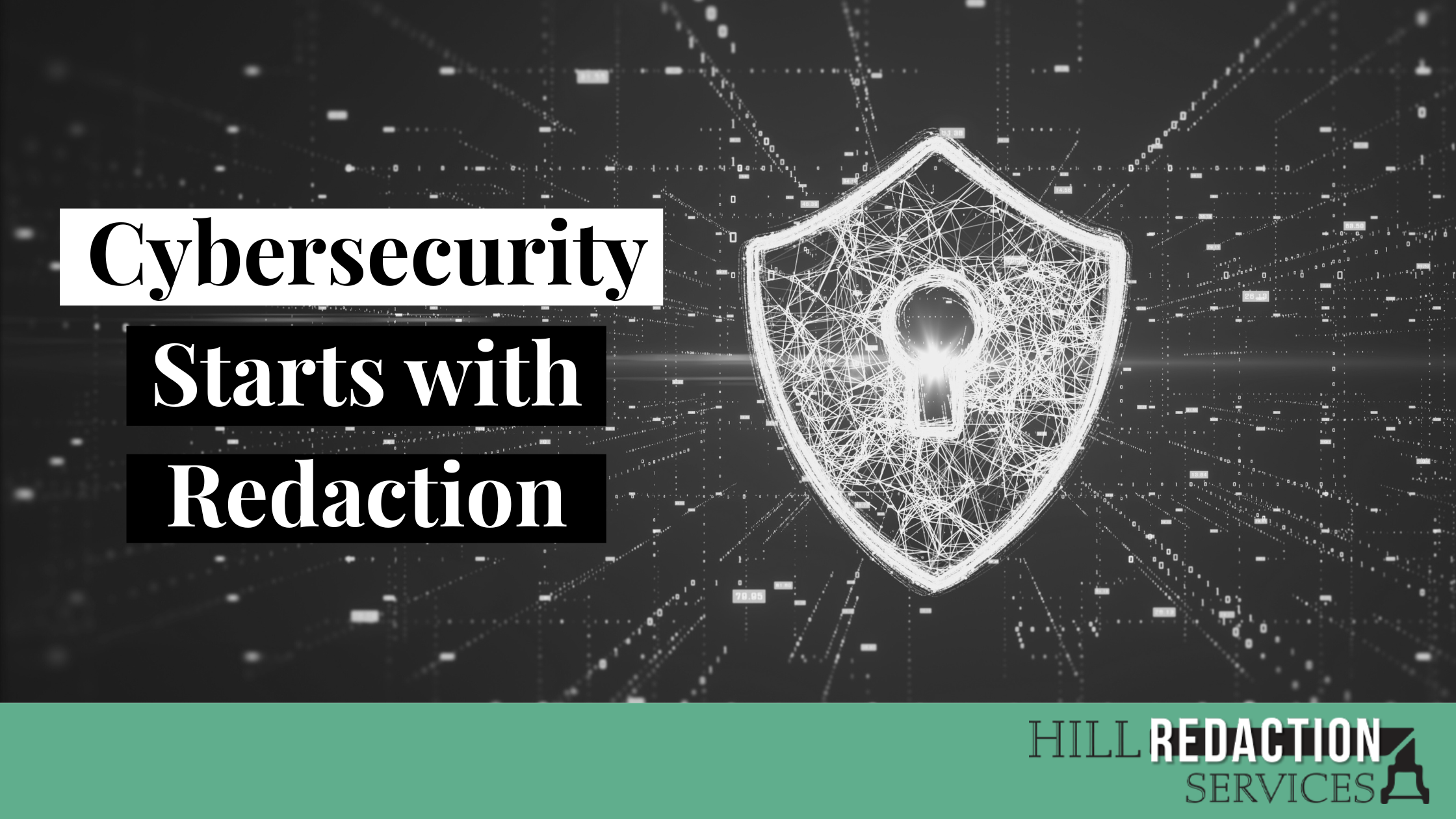
Why It Matters: The Importance of Document Redaction within the Mortgage Servicing Industry
In the fast-paced world of mortgage servicing, the importance of document redaction cannot be overstated. It’s the invisible shield that protects sensitive information from falling into the wrong hands, ensuring compliance, and maintaining client trust. This article sheds light on the pivotal role of document redaction, highlighting its necessity for privacy protection, regulatory adherence, and risk mitigation in the mortgage servicing industry.
- The significance of document redaction for privacy and compliance
- Navigating through regulatory requirements with effective redaction
- Mitigating risks with thorough document redaction practices
The Significance of Document Redaction for Privacy and Compliance
In today’s digital age, the security of sensitive information is paramount, especially in the mortgage servicing industry. Here, the practice of document redaction plays a crucial role, serving as a critical line of defence in protecting personal and financial data. But why is document redaction so vital, and how does it impact privacy and compliance?
- Privacy Protection: At its core, document redaction removes sensitive information from documents before they’re shared or published. This process is essential in safeguarding clients’ personal and financial details, ensuring that only necessary information is visible. In the context of mortgage servicing, where documents are laden with private data, redaction helps prevent identity theft, financial fraud, and unauthorized data access.
- Compliance with Regulations: The mortgage industry is heavily regulated, with stringent laws governing the handling of personal information. Regulations such as the Gramm-Leach-Bliley Act (GLBA) in the United States mandate the protection of consumers’ private information. Effective document redaction ensures that mortgage servicers comply with these regulations, avoiding hefty fines and legal repercussions.
- Risk Mitigation: Inadequate redaction or the accidental exposure of sensitive information can lead to significant risks, including legal challenges and reputational damage. By thoroughly redacting documents, mortgage servicers can mitigate these risks, maintaining their integrity and the trust of their clients.
Through Regulatory Requirements with Effective Redaction
The landscape of mortgage servicing is a minefield of regulatory requirements, designed to protect consumer privacy and ensure the integrity of financial transactions. Navigating this landscape requires a keen understanding of the laws and regulations at play, and a robust strategy for document redaction that meets these stringent standards.
- Understanding Key Regulations: Key pieces of legislation, such as the Gramm-Leach-Bliley Act (GLBA) and the Fair Credit Reporting Act (FCRA) in the United States, set the baseline for privacy protection in the financial industry. These laws require that personal information is handled with care and that any disclosure of such information is done in a controlled and lawful manner. Mortgage servicers must be well-versed in these regulations to not only comply but also anticipate how changes in the law might affect their operations.
- Implementing a Redaction Strategy: Effective redaction goes beyond merely blacking out information. It involves understanding what information needs to be protected and implementing a process that reliably removes this data from documents. This process must be both thorough and verifiable, ensuring that no sensitive information slips through the cracks.
- Leveraging Technology: Advances in technology have introduced sophisticated tools for document redaction, including software that can automatically identify and redact sensitive information. These tools can significantly streamline the redaction process, improving accuracy and efficiency. However, technology is not a panacea, and mortgage servicers must ensure that their use of redaction tools complies with all relevant regulations.
Mitigating Risks with Thorough Document Redaction Practices
In the mortgage servicing industry, the margin for error in handling sensitive documents is virtually non-existent. A single oversight can lead to data breaches, legal penalties, and a tarnished reputation.
Identifying Sensitive Information
The first step in effective document redaction is accurately identifying the information that requires redaction. This includes personal identifiers, financial details, and any other information that could compromise client privacy if disclosed. Mortgage servicers must develop a keen eye for detail and an in-depth understanding of the types of information considered sensitive under various regulations.
Adopting Best Practices
Best practices in document redaction involve more than just the redaction process itself; they encompass the entire lifecycle of the document, from creation to destruction. This includes establishing clear guidelines for who has access to sensitive documents, how these documents are stored and transmitted, and how they are ultimately disposed of. Training staff in these best practices is crucial to ensuring that every team member understands their role in protecting client information.
Regular Audits and Updates
The regulatory landscape and the nature of threats to data security are constantly evolving. As such, mortgage servicers must regularly audit their redaction practices and update them as necessary. This proactive approach ensures that practices remain effective against emerging threats and compliant with the latest regulations.
Redaction Done Right? Let’s Keep It Secure Together
Wrapping up, we’ve journeyed through the critical importance of document redaction in the mortgage servicing industry, from safeguarding privacy to navigating complex regulations and mitigating risks. You’re now equipped with the knowledge to elevate your redaction practices.
- Privacy is paramount; effective redaction protects it.
- Regulatory compliance is non-negotiable; smart strategies meet it.
- Risk mitigation is essential; thorough practices achieve it.
In a world where data security and privacy are under constant threat, having a reliable partner in document redaction isn’t just an option; it’s a necessity.
Your Security, Our Priority
At Hill Redaction Services, we’re more than just a service provider; we’re your partner in ensuring that every document you handle is a fortress of privacy and compliance. With our cutting-edge solutions and personalized approach, we make sure that your redaction needs are not just met—they’re exceeded. Let’s navigate the complexities of document redaction together, keeping your operations secure and your clients satisfied.
Related Posts

Why It Matters: The Importance of Document Redaction within the Mortgage Servicing Industry
In the fast-paced world of mortgage servicing, the importance of document redaction cannot be overstated. It’s the invisible shield that protects sensitive information from falling into the wrong hands, ensuring compliance, and maintaining client trust. This article sheds light on the pivotal role of document redaction, highlighting its necessity for privacy protection, regulatory adherence, and risk mitigation in the mortgage servicing industry.
- The significance of document redaction for privacy and compliance
- Navigating through regulatory requirements with effective redaction
- Mitigating risks with thorough document redaction practices
The Significance of Document Redaction for Privacy and Compliance
In today’s digital age, the security of sensitive information is paramount, especially in the mortgage servicing industry. Here, the practice of document redaction plays a crucial role, serving as a critical line of defence in protecting personal and financial data. But why is document redaction so vital, and how does it impact privacy and compliance?
- Privacy Protection: At its core, document redaction removes sensitive information from documents before they’re shared or published. This process is essential in safeguarding clients’ personal and financial details, ensuring that only necessary information is visible. In the context of mortgage servicing, where documents are laden with private data, redaction helps prevent identity theft, financial fraud, and unauthorized data access.
- Compliance with Regulations: The mortgage industry is heavily regulated, with stringent laws governing the handling of personal information. Regulations such as the Gramm-Leach-Bliley Act (GLBA) in the United States mandate the protection of consumers’ private information. Effective document redaction ensures that mortgage servicers comply with these regulations, avoiding hefty fines and legal repercussions.
- Risk Mitigation: Inadequate redaction or the accidental exposure of sensitive information can lead to significant risks, including legal challenges and reputational damage. By thoroughly redacting documents, mortgage servicers can mitigate these risks, maintaining their integrity and the trust of their clients.
Through Regulatory Requirements with Effective Redaction
The landscape of mortgage servicing is a minefield of regulatory requirements, designed to protect consumer privacy and ensure the integrity of financial transactions. Navigating this landscape requires a keen understanding of the laws and regulations at play, and a robust strategy for document redaction that meets these stringent standards.
- Understanding Key Regulations: Key pieces of legislation, such as the Gramm-Leach-Bliley Act (GLBA) and the Fair Credit Reporting Act (FCRA) in the United States, set the baseline for privacy protection in the financial industry. These laws require that personal information is handled with care and that any disclosure of such information is done in a controlled and lawful manner. Mortgage servicers must be well-versed in these regulations to not only comply but also anticipate how changes in the law might affect their operations.
- Implementing a Redaction Strategy: Effective redaction goes beyond merely blacking out information. It involves understanding what information needs to be protected and implementing a process that reliably removes this data from documents. This process must be both thorough and verifiable, ensuring that no sensitive information slips through the cracks.
- Leveraging Technology: Advances in technology have introduced sophisticated tools for document redaction, including software that can automatically identify and redact sensitive information. These tools can significantly streamline the redaction process, improving accuracy and efficiency. However, technology is not a panacea, and mortgage servicers must ensure that their use of redaction tools complies with all relevant regulations.
Mitigating Risks with Thorough Document Redaction Practices
In the mortgage servicing industry, the margin for error in handling sensitive documents is virtually non-existent. A single oversight can lead to data breaches, legal penalties, and a tarnished reputation.
Identifying Sensitive Information
The first step in effective document redaction is accurately identifying the information that requires redaction. This includes personal identifiers, financial details, and any other information that could compromise client privacy if disclosed. Mortgage servicers must develop a keen eye for detail and an in-depth understanding of the types of information considered sensitive under various regulations.
Adopting Best Practices
Best practices in document redaction involve more than just the redaction process itself; they encompass the entire lifecycle of the document, from creation to destruction. This includes establishing clear guidelines for who has access to sensitive documents, how these documents are stored and transmitted, and how they are ultimately disposed of. Training staff in these best practices is crucial to ensuring that every team member understands their role in protecting client information.
Regular Audits and Updates
The regulatory landscape and the nature of threats to data security are constantly evolving. As such, mortgage servicers must regularly audit their redaction practices and update them as necessary. This proactive approach ensures that practices remain effective against emerging threats and compliant with the latest regulations.
Redaction Done Right? Let’s Keep It Secure Together
Wrapping up, we’ve journeyed through the critical importance of document redaction in the mortgage servicing industry, from safeguarding privacy to navigating complex regulations and mitigating risks. You’re now equipped with the knowledge to elevate your redaction practices.
- Privacy is paramount; effective redaction protects it.
- Regulatory compliance is non-negotiable; smart strategies meet it.
- Risk mitigation is essential; thorough practices achieve it.
In a world where data security and privacy are under constant threat, having a reliable partner in document redaction isn’t just an option; it’s a necessity.
Your Security, Our Priority
At Hill Redaction Services, we’re more than just a service provider; we’re your partner in ensuring that every document you handle is a fortress of privacy and compliance. With our cutting-edge solutions and personalized approach, we make sure that your redaction needs are not just met—they’re exceeded. Let’s navigate the complexities of document redaction together, keeping your operations secure and your clients satisfied.





